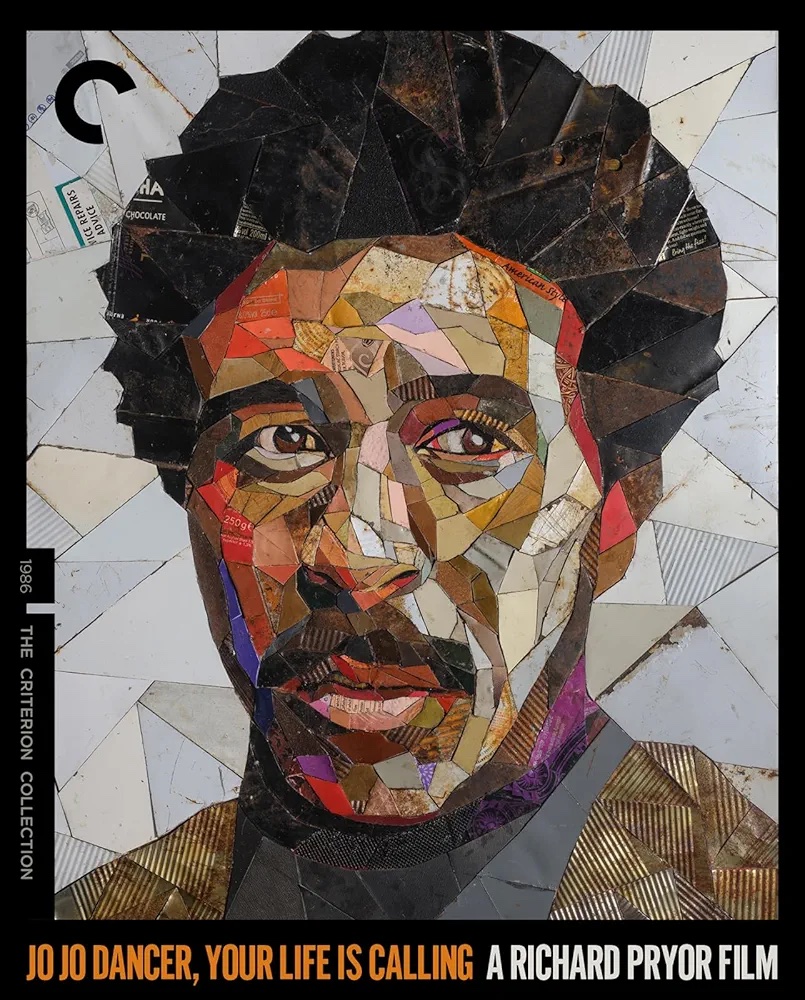We open on Jo Jo Dancer, wildly successful comedian, at the height of his success. He’s manic, electric, also hypocritical and conniving. He swears to get off drugs but immediately proceeds to do what he promises is his last cocaine. In all the whirlwind chaos, he catches himself on fire and is rushed to the hospital with severe burns, floating in and out of unconsciousness. Laying in his hospital bed, life hanging by a thread, his spirit rises from his body, angry and confused as to what led him to this point. He proceeds to then walk back through his life, witnessing everything from his childhood growing up in a brothel where his mother worked (which sets a precedent for how he views women the rest of his life) to his nervous, threadbare days as an early, unsuccessful comic, leading up to his break out stardom and what led him to where he is today: drug-addicted, nearly dead and full of self-loathing. Is the cycle destined to repeat itself ad infinitum?
For anyone with even a passing familiarity with Richard Pryor and his personal life, it will be obvious that Jo Jo Dancer is a thinly veiled stand-in for Pryor himself, who also wrestled with drug abuse and the cost of fame, including a harrowing incident where he set himself on fire while freebasing cocaine just like the opening of the film. Jo Jo Dancer, Your Life Is Calling very much feels like Richard Pryor’s All That Jazz (which is turn was basically Bob Fosse’s nod to Fellini’s 8 1/2) with not only it’s autobiographical structure but also in how it weaves a fantastical fatalism into the fabric of the film. The remarkable thing about both films is how they take what are ostensibly very unlikable protagonists and make them imminently watchable. With Jo Jo Dancer in particular, Pryor’s natural charisma comes through very clearly despite all the flaws and vices he parades in front of the viewer. It also helps that Jo Jo himself, in spirit form, is the first to question and condemn his life choices in funny and acerbic ways. This really is a tour-de-force performance for Pryor to showcase all the facets of his talent, made all the more personal since this was the only film that Pryor ever directed. The film is shot with a sure hand and a certain amount of inventiveness that showed Pryor’s promise in the director’s chair and presaged a possible successful alternate career had Pryor been able to follow Jo Jo Dancer up with other directorial efforts. Unfortunately it was around this time that Pryor was diagnosed with multiple sclerosis which led to him not only cutting short his directing career but also acting less and less. For Jo Jo Dancer, Pryor was also ably assisted by master cinematographer John Alonzo (DP of films like Chinatown and Scarface) who frames the picture in increasingly claustrophobic ways, heightening Pryor’s nervous energy which only escalates as the film goes.
The transfer provided to Criterion by Sony was struck in 4K from the original 35 mm camera negative, and it looks quite nice and clean with well-balanced grain, a nice depth of clarity and solid black levels. We also get a nicely mixed 2.0 stereo audio track with a nice sense of separation that serves the film’s needs well. The extras on this release are honestly a little on the light side. We first get a 30-minute appreciation by director Robert Townsend who discusses Pryor’s impact on him and the significance of the film in Pryor’s overall career. We also get an interesting interview of Pryor on the Dick Cavett Show released around the time of Jo Jo Dancer‘s release. You can tell that Pryor is a little uncomfortable talking about such a personal project but is also glad to get it out there while also be his usual hilarious self at times. I would have loved a full audio commentary that did more of a scene-for-scene comparison between the film and Pryor’s actual life, but the extras provided are still pretty solid.
Jo Jo Dancer, Your Life Is Calling is a deeply personal and well-made journey into the mind of a complex, and at times, very difficult and conflicted person, and Criterion has given us a very nice presentation with a handful of solid extras. If you are a fan of Richard Pryor (and who isn’t, right?), then you will absolutely need to get this deeply intimate peek behind the curtain of a voyage of self-reflection.

